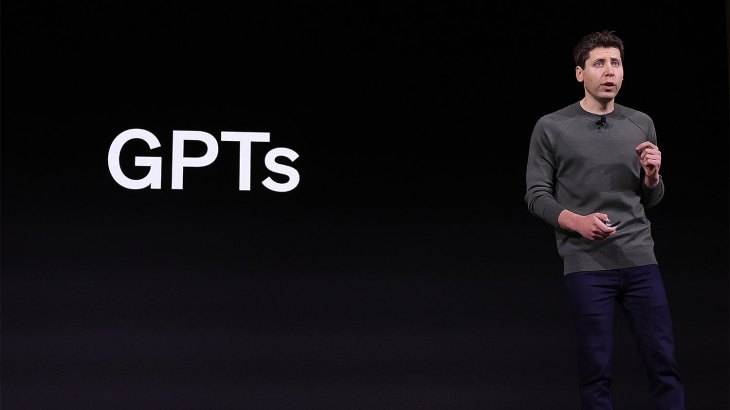OpenAI plans to launch a store for GPTs, custom apps based on its text-generating AI models (e.g. GPT-4), sometime in the coming week.
In an email viewed by TechCrunch, OpenAI said that developers building GPTs will have to review the company’s updated usage policies and GPT brand guidelines to ensure that their GPTs are compliant before they’re eligible for listing in the store — aptly called the GPT Store. They’ll also have to verify their user profile and ensure that their GPTs are published as “public.”
The GPT Store was announced last year during OpenAI’s first annual developer conference, DevDay, but delayed in December — almost certainly due to the leadership shakeup that occurred in November, just after the initial announcement. (The short version of the story is, CEO Sam Altman was forced out by OpenAI’s board of directors and then — after investors and employees panicked — brought back on with a new board in place.)
GPTs don’t require coding experience and can be as simple or complex as a developer wishes. For example, a GPT can be trained on a cookbook collection so that it can answer questions about ingredients for a specific recipe. Or a GPT could ingest a company’s proprietary codebases so that developers can check their style or generate code in line with best practices.
Developers can simply type the capabilities they want their GPT to offer in plain language and OpenAI’s GPT-building tool, GPT Builder, will attempt to make an AI-powered chatbot to perform those. Since shortly after DevDay, developers have been able to make and share GPTs with others via the ChatGPT website directly but not publicly list them.
Still unclear is whether the GPT Store will launch with a revenue-sharing scheme of any sort. As of November, Altman and CTO Mira Murati told my colleague Devin Coldewey that there wasn’t a firm plan for GPT monetization, and the email about the GPT Store’s coming launch makes no mention of what developers can expect on the payments front — if anything.
An OpenAI spokesperson told TechCrunch that more will be revealed next week.
As I wrote for TechCrunch’s semiregular AI newsletter a while back, OpenAI’s shift from AI model provider to platform has been an interesting one to be sure — but not exactly unanticipated. The startup telegraphed its ambitions in March with the launch of plug-ins for ChatGPT, its AI-powered chatbot, which brought third parties into OpenAI’s model ecosystem for the first time.
GPTs effectively democratize generative AI app creation — at least for apps that use OpenAI’s family of models. In fact, GPTs could kill consultancies whose business models revolve around building what are essentially GPTs for customers.
Source: TechCrunch



![[CITYPNG.COM]White Google Play PlayStore Logo – 1500×1500](https://startupnews.fyi/wp-content/uploads/2025/08/CITYPNG.COMWhite-Google-Play-PlayStore-Logo-1500x1500-1-630x630.png)